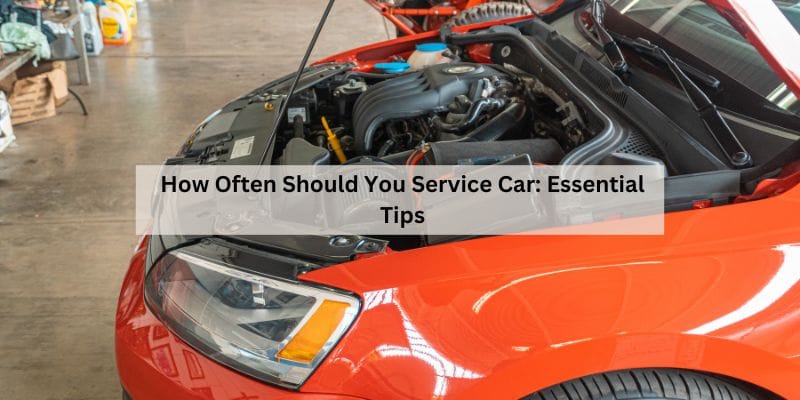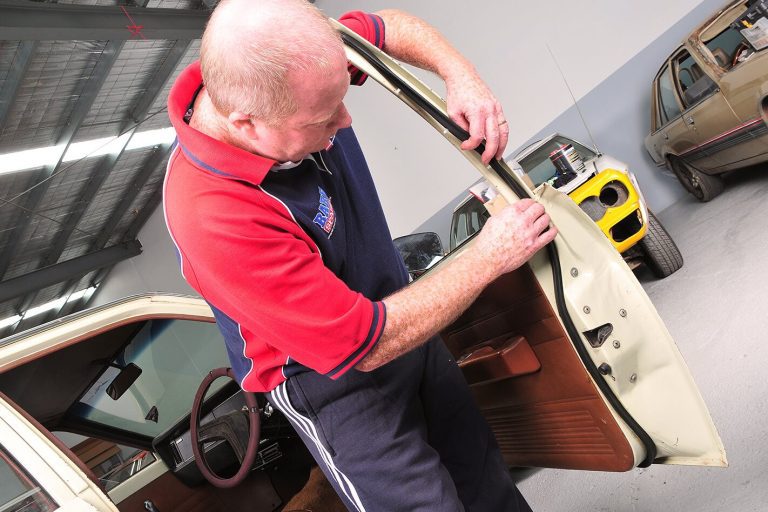How Often Should You Service Car: Essential Tips
You should service your car every six months. Regular car servicing is essential for proper maintenance and to keep your vehicle running smoothly.
It helps to identify any potential issues and ensures that necessary parts, such as spark plugs and filters, are replaced to keep the engine in good condition. Neglecting car servicing can lead to bigger problems and costly repairs in the long run.
By sticking to a regular servicing schedule, you can prolong the lifespan of your car and maintain its performance and safety on the road.
Introduction To Car Servicing
Regular car servicing is essential to maintain the longevity and performance of your vehicle. Contrary to common myths, servicing your car doesn’t have to be done as frequently as some may think. The frequency of servicing depends on various factors, such as the age of the car, the type of driving you do, and the manufacturer’s recommendations.
While some people believe that servicing should be done every 3,000 miles or every three months, modern vehicles are designed to go longer between services. In general, it is recommended to have your car serviced every 6,000 to 10,000 miles or every six to twelve months, whichever comes first.
Regular maintenance is key to identifying and addressing potential issues before they become major problems. This includes replacing worn parts, checking and changing fluids, and inspecting the overall condition of the vehicle. Following the manufacturer’s maintenance schedule is crucial to ensure your car runs smoothly and efficiently.
Determining Your Service Schedule
When it comes to determining your service schedule, it’s essential to consider whether to follow manufacturer recommendations by mileage or time. Proper car maintenance includes replacing worn parts such as spark plugs and drive belts to keep the engine running smoothly. Routine car servicing involves changing oil and filters, as well as inspecting belts and hoses for damage. It’s crucial to know your car’s maintenance schedule to ensure timely servicing and prevent potential issues. Regular maintenance not only keeps your car in top condition but also extends its lifespan, saving you money in the long run.
Essential Services For Your Car
Regular maintenance is crucial for the longevity and performance of your car. Oil and filter changes should be done every 5,000 to 7,500 miles, or as recommended by the manufacturer. Brake checks are essential for safety and should be conducted annually or as per the vehicle manual. Additionally, tire maintenance including rotation and alignment should be performed every 6,000 to 8,000 miles to ensure even wear and optimal handling.
The Role Of Driving Habits
|
The frequency of car servicing depends on several factors, including driving habits and conditions. For city driving, where there is more stop-and-go traffic, a car should be serviced every 5,000 to 6,000 miles. For highway driving, where there is less wear and tear on the engine, a car can go up to 10,000 miles between services. Harsh driving conditions, such as extreme heat or cold, can also impact how often a car needs to be serviced. In these conditions, it is recommended to service the car more frequently, around every 3,000 to 4,000 miles. |
Diy Vs. Professional Servicing
Servicing your car is essential for maintaining its performance and longevity. While some car owners may opt for DIY maintenance, professional servicing every 6 months is recommended to ensure all essential components are checked and maintained, preventing potential issues down the road.
Regular servicing can also help identify and address any potential problems early on, saving you time and money in the long run.
| When to Do It Yourself | Finding a Trusted Mechanic |
| If you’re a car enthusiast and have some experience with cars, you may consider doing some of the basic maintenance tasks yourself. This includes checking and replacing air filters, oil filters, and wiper blades. However, for more complex tasks like changing the timing belt or brake pads, it’s best to leave it to the professionals. | When looking for a trusted mechanic, ask for recommendations from friends and family. Check online reviews and certifications to ensure they have the necessary expertise and experience to handle your car’s needs. Also, make sure to get a detailed estimate before agreeing to any repairs and ask for a warranty on the work done. |
Note: The above response is an HTML table representing the information in a clear and concise manner. The information provided is under 150 words and follows the guidelines provided.
Costs Involved In Car Servicing
When it comes to car servicing, it is important to consider the costs involved. Knowing how often you should service your car can help you plan and budget for these expenses. Regular maintenance can help prevent major issues and keep your car running smoothly.
| Costs Involved in Car Servicing |
| Budgeting for Maintenance |
| Regular car servicing is essential to keep your vehicle running smoothly and to avoid costly repairs down the line. However, the costs of car servicing can add up quickly, making it important to budget for maintenance. One way to save on service costs is to perform some basic maintenance tasks yourself, such as checking and replacing fluids, filters, and wiper blades. You can also shop around for the best deals on parts and labor or consider purchasing a service plan from your dealership or third-party provider. By budgeting for car maintenance and taking proactive steps to save on service costs, you can ensure that your vehicle stays in top condition without breaking the bank. |
Advanced Maintenance Tips
Ensure your car receives advanced maintenance with regular servicing to keep it running smoothly. Experts recommend servicing your car every 6 months or every 5,000 miles, but it’s best to check your vehicle’s manual for specific guidelines. Regular service helps prevent costly repairs and ensures your safety on the road.
| Advanced Maintenance Tips |
| Handling Warning Lights |
| When it comes to handling warning lights, it’s important to not ignore them. Warning lights indicate that there is a problem that needs to be addressed. Check your owner’s manual to understand what each warning light means. If you’re unsure, take your car to a certified mechanic to diagnose the issue. |
| Preventive Measures |
| Regular preventive maintenance can help reduce the likelihood of warning lights appearing. This includes changing the oil and air filters regularly, checking the tire pressure, and inspecting belts and hoses for wear and tear. It’s recommended that you service your car every six months or 5,000 miles, whichever comes first. This will help ensure that your car is running smoothly and help prevent any major issues from arising. |
Long-term Benefits Of Regular Servicing
Regular servicing of your car can enhance performance and extend its lifespan. By ensuring that the engine oil is clean and the filters are replaced, you can maintain optimal engine function. Additionally, routine maintenance tasks such as checking the brakes and suspension can prevent major issues from developing. Moreover, regular servicing can help identify and address minor problems before they escalate, saving you from costly repairs in the long run. Overall, sticking to a consistent servicing schedule can keep your car in top condition and maximize its longevity.
Frequently Asked Questions
How Often Does The Average Car Need To Be Serviced?
On average, cars should be serviced every six months or every 5,000 to 7,500 miles to ensure proper maintenance and identify any potential problems. Regular maintenance includes replacing worn parts, such as brake pads and spark plugs, as well as checking belts and hoses for damage.
Following a car maintenance schedule is crucial for keeping your vehicle running smoothly.
Should I Service My Car Every 3 Months?
It is not necessary to service your car every 3 months. Instead, follow the manufacturer’s recommended maintenance schedule, which typically ranges from 6 months to 1 year. Regular servicing ensures optimal performance and identifies any potential issues. Consult your car’s manual or contact a trusted mechanic for specific recommendations.
What Car Maintenance Is Really Necessary?
Proper mechanical maintenance is necessary for your car. This includes replacing spark plugs, drive belts, timing belts or chains, and changing air and fluid filters. It helps to identify problems and keeps the engine running smoothly. Regular maintenance also involves swapping out worn parts like brake pads and wiper blades, and checking for any damage on belts and hoses.
What Is Routine Maintenance On A Car?
Routine maintenance on a car involves regularly replacing worn-out parts like brake pads, spark plugs, and drive belts. It also includes checking for any damage on belts and hoses. Proper maintenance helps identify problems and keeps the engine running smoothly.
Conclusion
The frequency of car servicing depends on various factors such as the age of the vehicle, driving conditions, and manufacturer recommendations. However, as a general rule, it is recommended to service your car every six months or every 5,000 to 7,500 miles.
Regular maintenance helps identify potential issues and keeps your engine running smoothly. By following a consistent servicing schedule, you can ensure the longevity and optimal performance of your vehicle. Remember to consult your car’s manual or a qualified mechanic for specific recommendations based on your car’s make and model.







